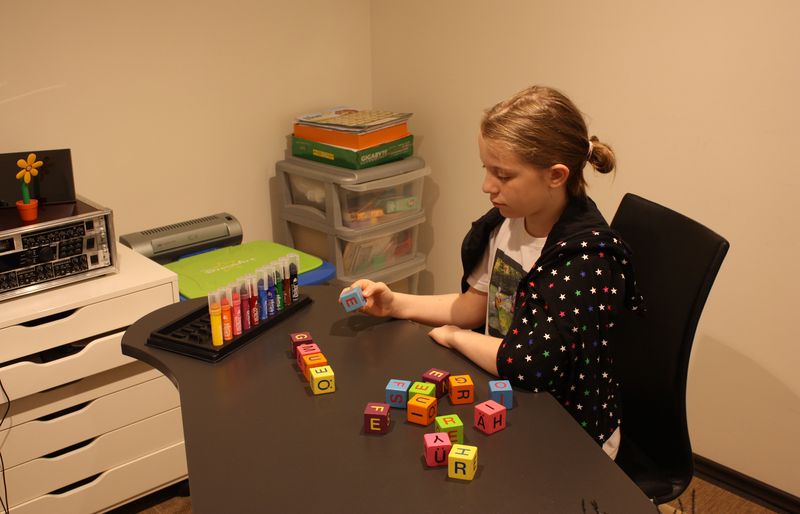
SCHOOL AGE
. . .
AT THE AGE OF SIX AND SEVEN THE CHILD ACQUIRES A SECURITY IN PHONOLOGICAL ANALYSIS AND SYNTHESIS WHOSE ELEMENTARY STEPS MAINLY DEVELOP IN PRESCHOOL AGE.
IN THIS AGE IT IS NECESSARY FOR A CHILD TO ISOLATE THE FIRST AND LAST SOUNDS IN A WORD MORE COMPLEXLY, DETERMINE THE POSITIONS OF SOUNDS IN A WORD AND, FINALLY, TO DETERMINE THE ORDER OF THE SOUNDS IN A WORD.
What should be developed during the school age:
- skills and functions of speech that are necessary for learning the written language (auditory attention, phonological hearing, phonological perception, analysis and synthesis);
- orientation in space and time, visual spatial perception, visual and constructive thinking (the child is able to extract the main elements, differentiate them by colour, shape, their position in space and number);
- development of successive functions, which implies that the child plans and carries out activities step by step following the specified sequence;
- fine motor skills of hands and fingers;
- refinement of hearing motor coordination and organization of movement (speech and movement are aligned; there is a sense of rhythm and pace, memory);
- development of emotional intelligence, which refers to a series of emotional traits (empathy, understanding and expressing their own feelings, self-control, independence in attitudes and behaviour, co-operability, perseverance, respect, kindness).
These characteristics indicate a child's success in school and involvement in further development.